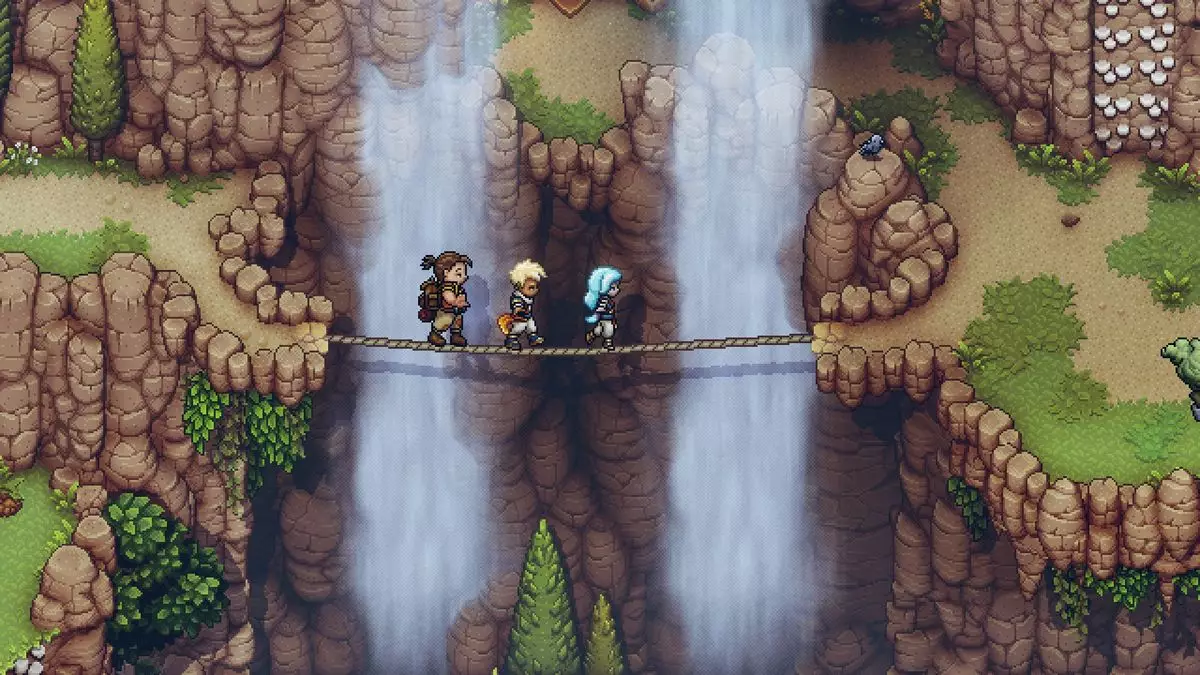The gaming industry continues to witness a resurgence of retro-inspired titles, and Sabotage Studio’s latest project, Sea of Stars, stands as a testament to this phenomenon. Following the success of their action-packed platformer, The Messenger, the studio has turned its creative gaze towards the rich tapestry of classic JRPGs. This evolution not only reflects nostalgia but also demonstrates a profound understanding of game design that resonates with both old-school gamers and newcomers alike.
In a recent interview during the Golden Joystick Awards 2024, game director Thierry Boulanger emphasized the importance of classic gaming influences, particularly from Nintendo. His reflections highlighted the studio’s desire to infuse contemporary design principles into their homage to the genre. By doing so, they aim to craft an experience that pays tribute to beloved titles while simultaneously offering players something innovative and fresh.
Boulanger’s acknowledgment of Nintendo as a core influence underscores a broader trend within the indie game development community. Many developers, shaped by their formative years spent playing titles on iconic consoles such as the NES and SNES, draw inspiration from Nintendo’s legendary catalog of games. For Sabotage Studio, studying Nintendo’s approach to gameplay mechanics, level design, and narrative structure is vital. They regard the company’s work in the ’80s and ’90s as a wellspring of learnings that continue to be relevant.
What sets Sea of Stars apart from mere nostalgia is its ability to integrate modern elements into its design. Boulanger pointed out how The Messenger featured the unique ability to shift between 8-bit and 16-bit graphics, creating a gameplay experience that draws on the strengths of both styles. Similarly, Sea of Stars embraces collaborative gameplay, allowing players to engage in cooperative adventure while invoking the spirit of classics like Chrono Trigger and Secret of Mana.
The insights shared by Boulanger extend beyond individual titles to encompass fundamental principles that underlie successful game design. He elaborated on the importance of core tenets including pacing, difficulty scaling, and sound design, which are critical for creating immersive experiences. By focusing on these aspects, Sabotage Studio aims to develop games that don’t just resonate with the past but also establish a strong connection with modern gaming sensibilities.
The reverence for gaming history that Sabotage Studio embodies is an uplifting reminder of the impact that early gaming experiences can have on future developers. Their approach showcases how appreciation for vintage aesthetics and mechanics can coalesce with current innovations to produce engaging and meaningful gameplay.
As the industry continues to evolve, the trajectory of games like Sea of Stars signals a promising future for indie developers willing to take risks. The blending of nostalgia and modernity offers a rich canvas for creativity, allowing emerging studios to carve their niche while paying homage to the inspirations that shaped them. It’s an exciting time for gaming, and one can only wonder what new heights Sabotage Studio will reach as they continue their journey within this vibrant landscape. With Sea of Stars, they’re not just reviving the past; they’re crafting an enduring legacy that celebrates the essence of gaming.


Leave a Reply